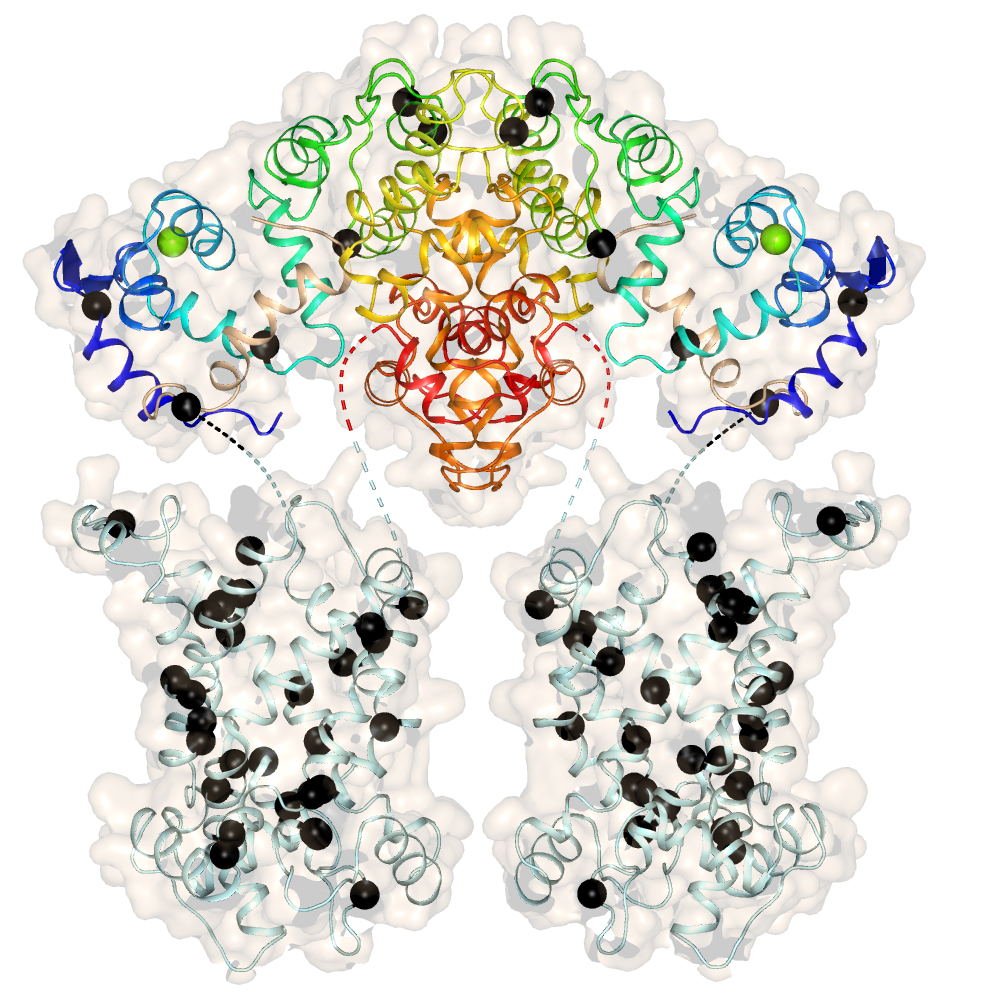DISEASES CAUSED BY MITOCHONDRIAL TRANSPORT PROTEINS
In agreement with their central role in metabolism and physiology, many dysfunctional mitochondrial transporters cause human disease. With the discovery of other transport proteins, it is likely that more will be implicated.
Figure Missense mutations of the mitochondrial aspartate/glutamate carrier citrin that lead to citrin deficiency.
Twelve different human diseases have been associated with dysfunctional mitochondrial carriers [1] [2]. For example, citrin deficiency is a metabolic disease caused by a defective mitochondrial aspartate/glutamate carrier, leading to impaired export of aspartate from the mitochondrion, which in turn is required for the urea cycle, malate-aspartate shuttle, gluconeogenesis and central energy metabolism [3]. The carrier is a chimera of three domains. We have solved the structure of the regulatory domain of citrin and have demonstrated that it forms a homo-dimer via dimerization of the N-terminal domain [4]. The N-terminal domain contains eight EF-hands (rainbow), but only EF-hand 2 binds calcium (green spheres). The C-terminal domain (wheat) is bound in a conserved hydrophobic groove of the N-terminal domain. The regulatory domain and the carrier domains (light blue), modelled on the yeast ADP/ATP carrier [5], contain many missense mutations (black spheres).
We will identify mitochondrial transport proteins that are involved in human disease and characterise mutations that lead to dysfunctional carriers in order to understand their impact on physiology.
REFERENCES
Citrin deficiency, a perplexing global disorder. Mol Genet Metab 96, 44-9


